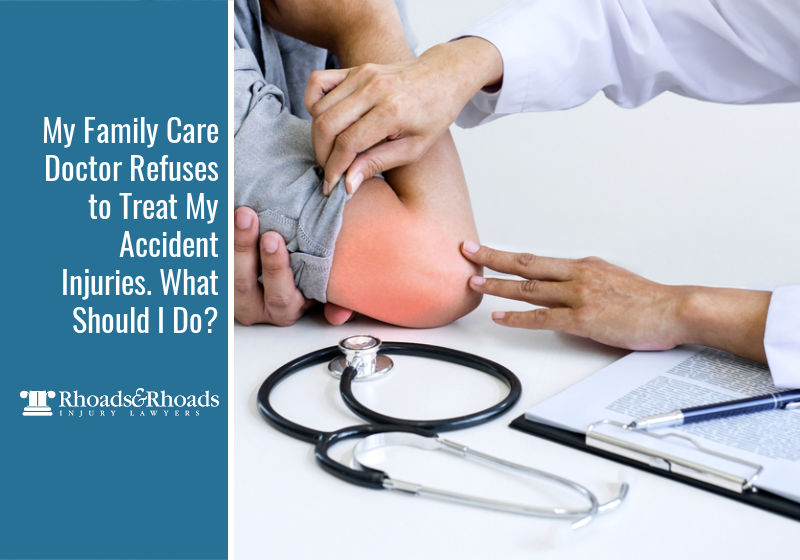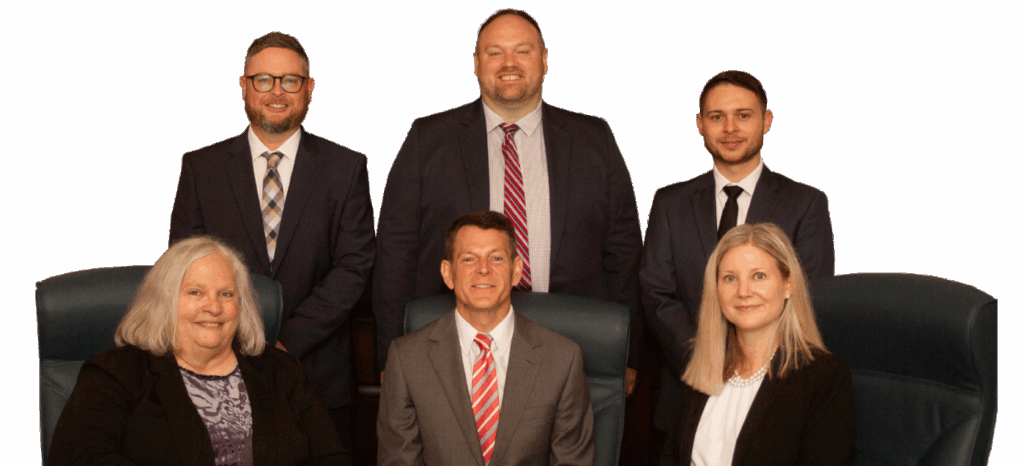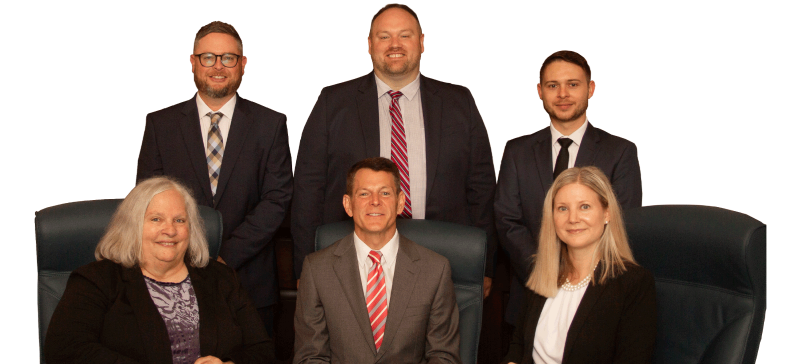
It’s often surprising and frustrating to learn that your family doctor will not treat or evaluate your injuries following an accident. After a car accident or slip and fall injury, your family doctor who you’ve been seeing for years, potentially, might simply say no to treatment and evaluation.
While such a scenario seems off putting, your doctor may not want to get tied up in an injury case and might have a policy against treating accident victims, as backward as that sounds. While the reasoning behind such refusal can vary, you are not without options if your family doctor refuses to treat your accident injuries.
Why Would My Family Doctor Refuse to Treat My Accident Injuries?
It may feel like betrayal if your family doctor says no to evaluating you after an accident. Yet refusing to treat accident victims is common among doctors. Family doctors might feel that they lack expertise or do not wish to get involved in an injury case. Others can be concerned about receiving payment. Here’s a closer look.
Requiring a Specialist
Doctors specializing in family medicine and internal medicine, which is likely your family doctor’s specialty, may feel unqualified to evaluate your injuries. Injuries from car accidents and other types of accidents often involve:
- Bone fractures
- Neurological injuries
- Internal organ and tissue damage
- Spinal, back, and neck injuries
These types of injuries may be best evaluated by a specialist, such as an orthopaedic doctor or neurologist. Your family doctor may feel that a specialist would be better suited to evaluating and treating your injuries.
Avoiding Case Complications
Doctors who treat and evaluate accident victims may have to testify about these injuries during a trial. They may be asked to provide written testimony to verify and describe the injuries and their extent. Their office might also receive subpoenas for medical records and other information needed to support a case.
Both personal injury attorneys and insurance companies can be resolute and insistent when it comes to obtaining such materials, and your doctor’s office might simply respond with a blanket policy of refusing to treat or evaluate accident injury victims. Some doctors simply do not want to be involved with such matters.
Insurance Entanglements
Accident cases can involve multiple insurance companies and, often, insurance companies outside of health insurance providers. Doctors’ offices are more used to dealing with health insurance companies and their billing practices. But when a personal insurance company is involved with paying the bill, it can complicate processes.
Further, in an unresolved accident case, a claim’s outcome might determine who must pay the bill, which could delay payment. The bottom line is that payment for evaluating and treating accident victims can quickly get complicated. Doctors’ offices, therefore, may refuse to treat people involved in accidents, including their own patients.
Here’s What to Do If Your Family Doctor Refuses to Treat Your Injuries
It’s important to obtain a medical evaluation and treatment after an accident. Detecting and preventing underlying injuries is critical to your health, and a medical evaluation will be essential to your personal injury case; you’ll need a credible injury report to support your damages. Know what to do if your family care doctor refuses to treat your accident injuries.
Branch Out
The most logical step would be to try another doctor’s office and explain that it’s critical that you receive an evaluation and treatment.
- Family, friends, or others might be able to recommend a doctor or know of one who has treated accident victims.
- Our personal injury attorneys can also help you find a doctor who will evaluate and begin treating your injuries.
Obtain a Letter of Protection
A letter of protection issued by a personal injury lawyer creates an agreement between a doctor and lawyer that states that your medical expenses will be paid at a future date. The doctor holds your bills until your case settles, at which time bills are paid out of the settlement. Only a personal injury attorney can issue such a letter, and a letter cannot be provided if you were at fault for your accident. However, such a letter helps guarantee that doctors’ offices will be paid.
When Your Family Doctor Won’t Treat Your Injuries After an Accident, Call Your Lawyer
When your doctor refuses to treat your injuries after an accident, the personal injury attorneys at Rhoads & Rhoads can help find a doctor who will evaluate and treat you. We want the best for our clients, and that means helping them find a medical professional to get the care and evaluation that they need.
If you’ve been hurt in an accident, the legal team at Rhoads & Rhoads wants to speak with you. Give us a call at 1-800-709-9329. We can provide a free case evaluation to learn more about you and your accident and how we can help recover compensation for you.


